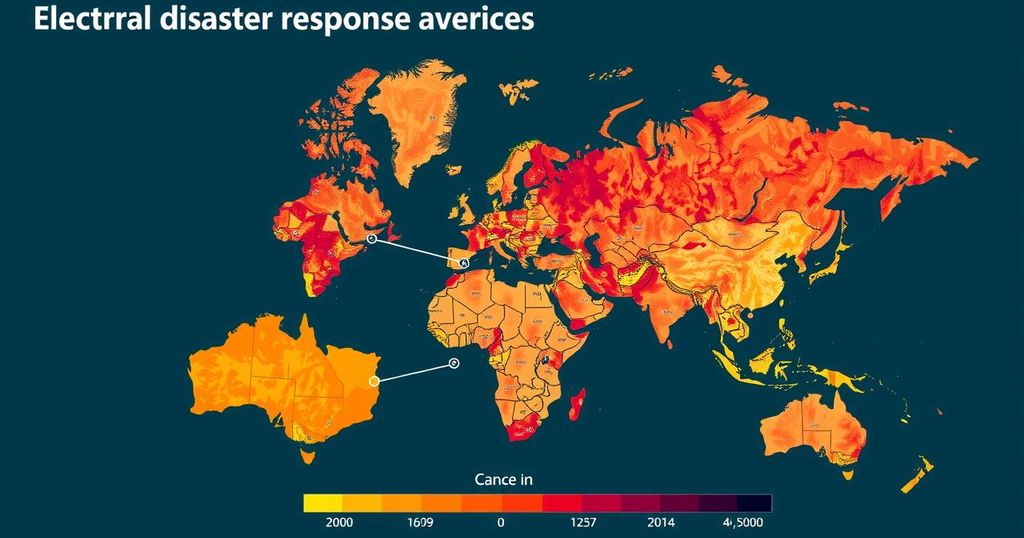The Impact of Extreme Weather on Global Elections During the 2024 Election Supercycle
The 2024 Election Supercycle faced disruptions due to extreme weather impacting elections in 14 countries, including the United States and India. Events such as storms in Tuvalu and a heatwave in Mexico exemplify how climate change exacerbates electoral challenges. International IDEA’s EECM provides a detailed dashboard chronicling these impacts and responses for stakeholders.
The 2024 Election Supercycle has been notably impacted by extreme weather events affecting elections across 14 countries globally, including significant disruptions in Bosnia & Herzegovina, India, Mexico, Senegal, Tuvalu, and the United States. Numerous incidents were intensified by climate change, interfering with critical phases of the electoral process such as voter registration, campaigning, and result announcements. Noteworthy examples include the Tuvalu Prime Ministerial vote being delayed due to storms, and the record heatwave in Mexico causing heat-related illnesses at polling stations. International IDEA’s Election Emergency and Crisis Monitor (EECM) provides a comprehensive dashboard documenting these challenges, featuring over 65 country briefs discussing various disasters from 2001 to 2024, including their impact on electoral integrity and relevant adaptations undertaken to maintain the election process.
The interplay between climate change and electoral processes has gained increased attention in recent years as extreme weather events become more frequent and severe. These events, which include floods, hurricanes, and heatwaves, pose significant threats not only to public health and safety but also to democratic processes. The ability for citizens to participate meaningfully in elections is hindered when natural disasters disrupt these critical democratic events. The 2024 Election Supercycle has highlighted these vulnerabilities, revealing the urgent need for electoral systems to incorporate resilience planning in response to such disasters.
In conclusion, the effects of extreme weather on the electoral process during the 2024 Election Supercycle underscore the urgent need for global awareness and preparedness. The documented instances of disrupted elections due to climate change-related events serve as a call to action for policymakers, electoral bodies, and the international community to develop frameworks that enhance the resilience of electoral systems against future disasters. The EECM Dashboard stands as a valuable resource in understanding these challenges and fostering informed responses to ensure electoral integrity amidst adversity.
Original Source: www.idea.int




Post Comment